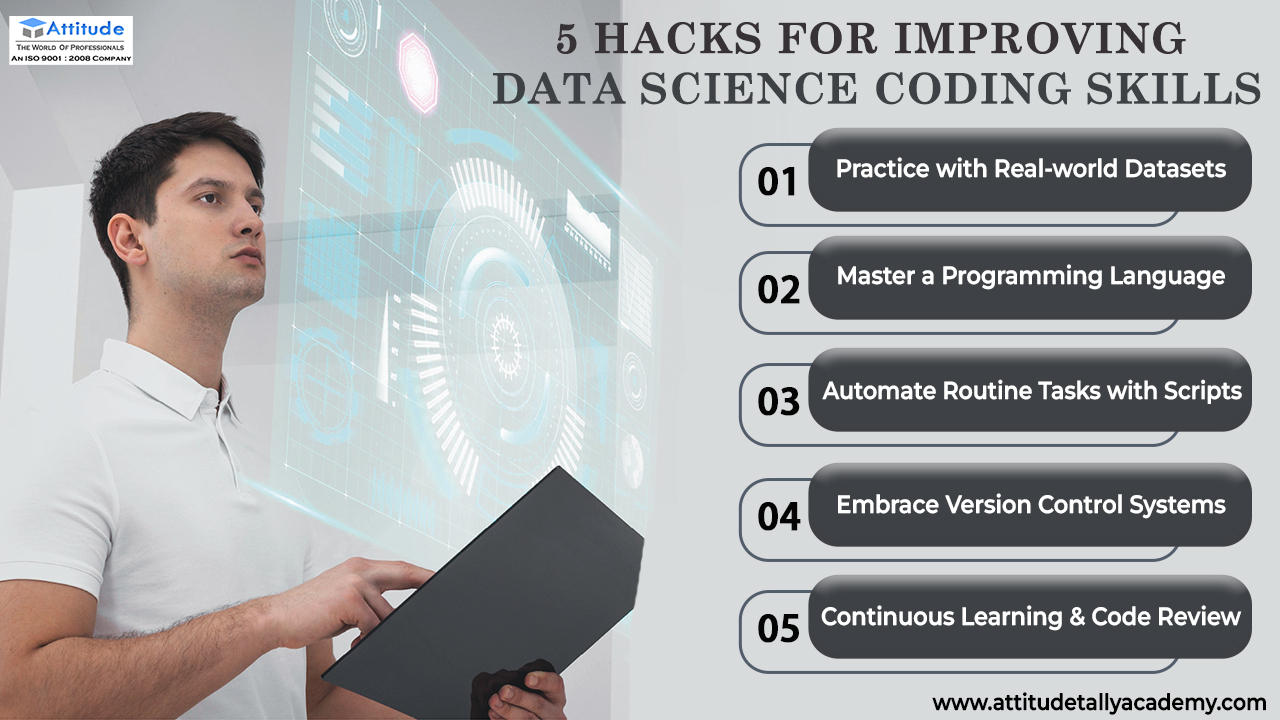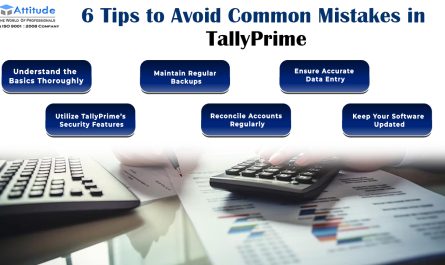Introduction
In the fast-paced world of data science, staying ahead means continually refining your coding skills. Whether you’re a novice or a seasoned professional, there’s always room for improvement. Here are five data science coding hacks to help you elevate your skills and ensure you’re always at the top of your game.
- Practice with Real-World Datasets
To truly master data science coding, you need to move beyond theoretical exercises and engage with real-world datasets. Working with actual data not only enhances your problem-solving skills but also exposes you to the kind of messy, unstructured data you’ll encounter in the field. Websites like Kaggle, UCI Machine Learning Repository, and Data.gov offer a wealth of datasets to practice on. By tackling real-world problems, you’ll learn to clean, manipulate, and analyze data more effectively, thereby improving your data science skills.
- Master a Programming Language
While it’s tempting to dabble in multiple programming languages, mastering one language thoroughly can be far more beneficial. Python and R are the most popular choices in the data science community due to their robust libraries and frameworks. Focus on becoming proficient in one of these languages. Learn the syntax, practice writing efficient code, and explore the vast ecosystem of libraries available. This deep understanding will give you the confidence to tackle complex projects and improve your data science coding hacks.
- Automate Routine Tasks with Scripts
Automation is a game-changer in data science. By writing scripts to automate repetitive tasks, you can save time and reduce the risk of errors. Whether it’s data cleaning, preprocessing, or generating reports, automation can make your workflow more efficient. Tools like Python’s pandas library or R’s dplyr package are excellent for data manipulation tasks. Invest time in learning how to write and optimize scripts that automate your routine tasks. This will not only improve your coding efficiency but also free up time for more complex analyses.
- Embrace Version Control Systems
Version control systems (VCS) like Git are indispensable tools for any coder. They allow you to track changes, collaborate with others, and revert to previous states if something goes wrong. Embracing version control will make your coding process more organized and less stressful. Start by learning the basics of Git and GitHub. Practice creating repositories, committing changes, and branching. As you become more comfortable, you’ll appreciate how VCS can streamline your workflow and enhance your collaborative efforts.
- Continuous Learning & Code Reviews
The field of data science is ever-evolving, and continuous learning is essential to stay relevant. Participate in online courses, attend workshops, and read the latest research papers. Engaging in code reviews is another powerful way to improve your skills. Reviewing others’ code exposes you to different coding styles and techniques, while receiving feedback on your own code helps identify areas for improvement. Platforms like GitHub and Stack Overflow are great places to start. By committing to continuous learning and embracing code reviews, you’ll keep your skills sharp and up-to-date.
Conclusion
Improving data science skills requires dedication, practice, and a proactive approach to learning. By integrating these five hacks—practicing with real-world datasets, mastering programming languages, automating tasks with scripts, embracing version control systems, and engaging in continuous learning—you can accelerate your growth as a proficient data scientist. Remember, the journey to mastery is ongoing, and each coding challenge is an opportunity to refine your skills and contribute meaningfully to the world of data science.
Suggested Links: –




